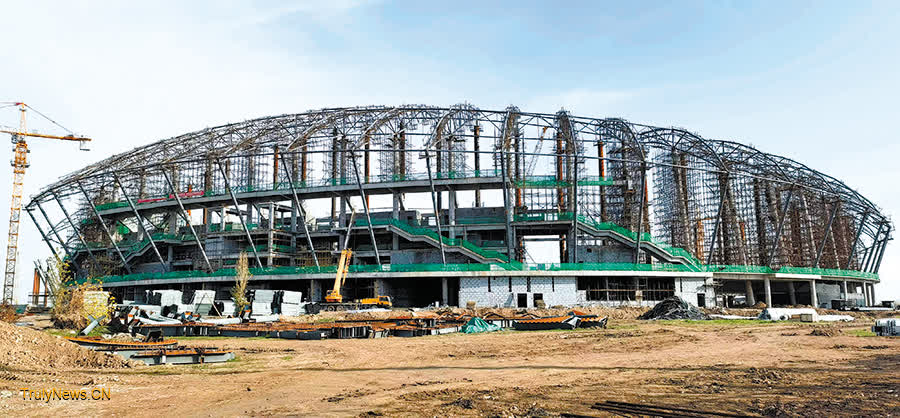
Since China National Chemical Engineering Group Corp announced the establishment of an integrated petrochemicals complex and infrastructure project in Kazakhstan last year, it has been providing crucial support in upgrading Kazakhstan’s petrochemical industry and boosting the country’s economic growth.
The project serves as a shining example of the increasing cooperation between China and Kazakhstan, and how such cooperation can be beneficial for members of the Shanghai Cooperation Organization.
Market observers said that, driven by the growth of the Belt and Road Initiative and their complementary industrial and trade structures, China and Kazakhstan are likely to expand business ties in areas such as transportation, finance, new infrastructure, clean energy, trade in services and manufacturing.
Unlike traditional infrastructure such as railways, roads and water conservancy, the concept of new infrastructure refers to critical facilities based on information technologies such as 5G, AI, the industrial internet and the internet of things. IoT describes networks of devices that can connect and exchange data.
China-Kazakhstan trade was worth 95.8 billion yuan ($13.2 billion) in the first four months of this year, a 23.3 percent increase year-on-year, China’s General Administration of Customs said.
Crude oil, natural gas, minerals and agricultural products are Kazakhstan’s main exports to China. China exports mainly manufacturing equipment, steel, vehicles, electronics, textiles, garments and household appliances to Kazakhstan.
Zhang Yongjun, secretary-general at the China Center for International Economic Exchanges in Beijing, said that amid increasing global economic pressures, China and Kazakhstan have contributed to ensuring the stability of Eurasian production cooperation and the smooth operation of the China-Europe freight train service.
They have also effectively addressed global energy security challenges, Zhang said.